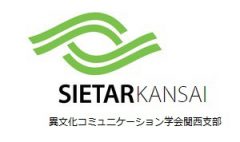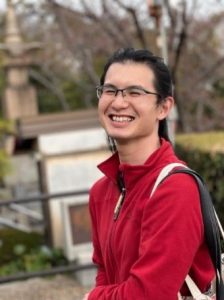Part I: Collecting and Repatriating Māori Ancestral Remains in Aotearoa New Zealand パートI: ニュージーランド先住民マオリの遺骨の収集と返還
Part II: How the Revitalization of Māori Traditional Arts Affects Current Cultural Practice パートII: マオリの伝統舞踊の復興はいかに現在の文化的実戦に影響を与えているか
Speaker: Huyuki Doi
講演者: 土井冬樹
Date: April 23 (Sun.) 2:00-5:00
日時: 2023年4月23日(日) 14:00~17:00
Fee: Free for all 参加費: 無料
Language: English and Japanese ZOOM Online presentation *registration required*
言語: 英語/日本語 Zoomオンラインプレゼンテーション ※ 事前申込みが必要です。
Contact: fujimotodonna@gmail.com to get the Zoom link; for any questions.
連絡先: Zoomリンクの取得、ご質問はfujimotodonna@gmail.comまで。
Huyuki (Yuki) Doi is a scholar of cultural anthropology (PhD). He has conducted field research for more than 10 years among the Māori people, the indigenous people of New Zealand. Currently, he is a collaborative researcher at Kobe University and a visiting researcher at the National Museum of Ethnology, Osaka.
発表者:土井冬樹 神戸大学国際文化学研究推進インスティテュートの協力研究員及び国立民族学博物館の外来研究員。専門は文化人類学(博士)。ニュージーランドの先住民であるマオリを対象に、10年以上の間フィールドワークを行なっている。
概要/ Presentation Outline
I. In the past, museums have been principally operating as colonial institutions throughout the world. In the 18th and 19th centuries, the indigenous peoples, who were called “natives” and “savages” at that time, were regarded as dying out because their population was in decline. Many scientists and private collectors stole an abundance of their ancestral remains. They justified their stealing practice as “preserve” and “record” the uniqueness of dying out peoples. These “collections” had been stored in museums. More recently, however, museums around the world have set up projects for the repatriation of human remains to the source community. This presentation will focus on what museums in Aotearoa New Zealand have done to return human remains to their rightful people, communities and places.
I. 元来、博物館は、植民地主義的な施設とされてきた。18世紀から19世紀にかけて、当時原住民や野蛮人と呼ばれていた人々は、植民地主義の影響で人口を縮小させていた。そのため、かれらは死にゆく民族だと考えられていた。多くの科学者やコレクターは、先住民の文化や特徴を「記録」し、「保存」しなければならないとして、人骨を盗掘して収集し、博物館に収めた。しかし、近年になって、収集した人骨を返還する計画が世界中の博物館で実施されるようになってきている。今回の発表では、ニュージーランドの先住民であるマオリに焦点を当て、博物館の収集と返還の実践について取り上げる。
II. In the case of the Māori, the revitalization of traditional performing arts means not only revitalizing the old or the traditional dance and songs, but also revitalizing their everyday cultural practices. The second half of the presentation will focus on Haka or Kapa Haka (re)vitalization to see how this activity positively affects the Māori everyday cultural practices
II. マオリの場合、伝統的な民族舞踊の復興は、単に過去のものを復興する以上の意味を持っていた。それが、日常的な文化的実践の活発化である。後半の発表では、マオリのハカ(あるいはカパハカ)の復興・活発化がいかに、そしてどのように日常的な実践を刺激しているのかに焦点を当てる。

